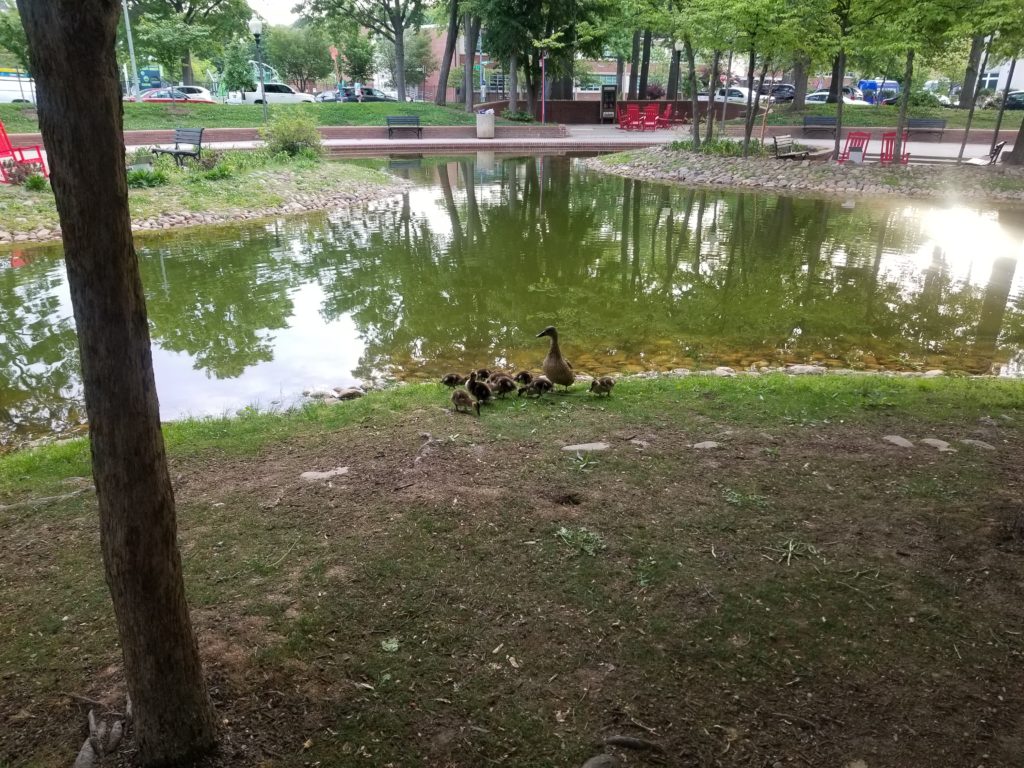By Denise Rennis

Many Southwest residents have been thrilled to see the new neighbors that have moved into our newly revitalized Duck Pond. A mother mallard (known as a hen) and her 10 ducklings have taken up residence on one of the new island habitats that were recently installed.
Here, the babies will stick close to their mother for protection as they forage in the shallow water, eating aquatic plants and insects. The shallow water, increased vegetation, and sloping islands allow the ducklings to easily get in and out of the water, which is extremely important because ducklings, particularly during the initial weeks after hatching, are too small to climb over a ledge to reach dry land to rest and stay warm.
Without being able to leave the water, ducklings will become waterlogged and drown because they don’t yet have a functional oil gland to coat their down and make them waterproof. Their mother provides this through preening when they are still in the nest so they can quickly get to water after hatching and float while swimming.
We don’t know exactly where this hen nested, but we assume in a planter or garden nearby, although some hens will lead their newly hatched ducklings for miles to reach water. This initial walk starts the hazardous life of a duckling. Not only do they have to quickly get to water and be able to get out of the water before drowning, they are eaten by crows, attacked by squirrels, sometimes killed by the male mallards (called drakes), and occasionally harassed or taken by humans. Although we can’t do much about protecting these ducklings from nature, the Federal Migratory Bird Treaty Act helps protect mallards and other migratory birds from humans by making it illegal to kill, capture, sell, trade, and transport any migratory bird.
More locally, volunteers of City Wildlife’s Duck Watch program monitor mallard nests, help them get to water when necessary, and keep an eye on their well-being. Problems are reported to City Wildlife at 202-882-1000 or the Humane Rescue Alliance at 202-723-5730.
So, quietly enjoy our neighbors while they are here. They are growing fast, and eventually their new home will become too small and they will move onto a larger body of water. We might see this hen again with her next brood of ducklings, but hopefully, other new mallard families will move into our neighborhood and our lovely duck pond habitat.

